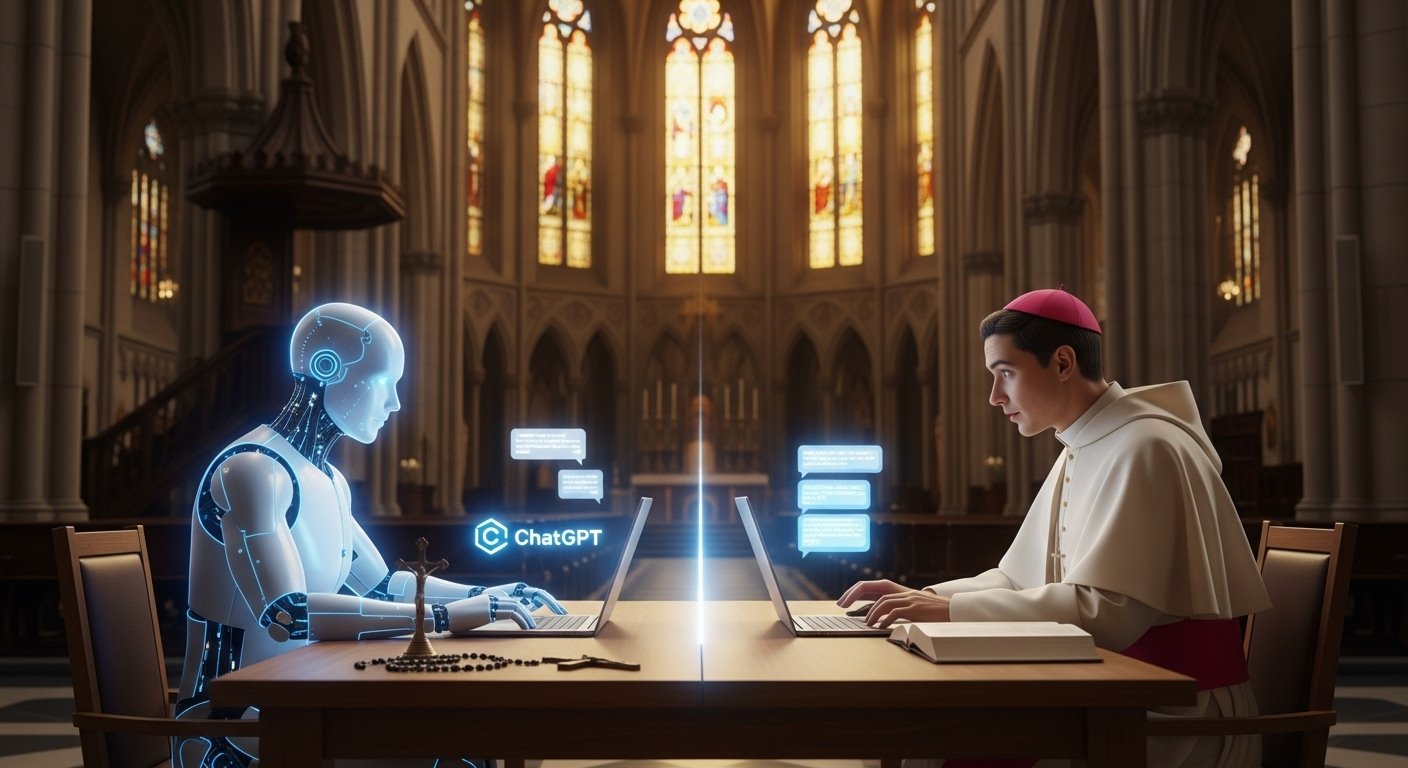Artificial intelligence (AI) tools like ChatGPT are changing how people access information. For Catholics, these tools raise an important question: is it appropriate to use ChatGPT for research on faith, theology, or doctrine? This article examines the benefits, risks, and ethical considerations of using ChatGPT for Catholic research. It draws on insights from top-ranking websites, Vatican guidance, and common user questions to provide a clear, actionable guide. Written in simple English, this content aims to help Catholics make informed decisions while staying true to their faith.
Benefits of Using ChatGPT for Catholic Research
ChatGPT offers several advantages for Catholics researching their faith:
- Speed and Efficiency: ChatGPT can quickly summarize complex topics, such as Church history or theological concepts, saving time for busy individuals.
- Accessibility: It explains difficult ideas in simple terms, helping those new to Catholicism understand key teachings.
- Idea Generation: It can spark new perspectives or questions, encouraging deeper exploration of faith topics.
Specialized tools like Catholic.chat take this further. Developed by Fivable, Catholic.chat uses AI to provide answers aligned with the Catechism of the Catholic Church. It offers three levels of engagement—child, adult, and scholar—making it versatile for families, students, and clergy.
Ethical Considerations
While ChatGPT is a powerful tool, it comes with ethical challenges that Catholics should consider:
- Intellectual Property Concerns: ChatGPT was trained on vast amounts of text without permission from authors, raising questions about fairness and plagiarism. Some, like Jim McDermott in America Magazine, argue this constitutes theft.
- Accuracy Issues: AI can produce errors or fake citations, as noted by Catholic Answers. Users must verify information to avoid misinformation.
- Privacy Risks: Data shared with ChatGPT may be used to train the AI or accessed by others, posing security concerns. Catholics should avoid sharing personal or sensitive information.
To address these issues, users should cite AI-generated content clearly and approach it with caution, ensuring it aligns with Catholic values.
Catholic Perspectives on AI

The Catholic Church has actively engaged with AI’s ethical implications. In January 2025, the Vatican released “Antiqua et Nova”, a document from the Dicasteries for the Doctrine of the Faith and for Culture and Education. It emphasizes:
- Human Intelligence as a Divine Gift: Human intelligence, created in God’s image, is distinct from AI, which is a human-made tool.
- Ethical Use of AI: AI should serve humanity, promoting the common good and avoiding harm like discrimination or misinformation.
- Need for Regulation: The Vatican calls for oversight to ensure AI is used responsibly, warning against control by a few powerful corporations.
Catholic-specific AI tools, like MagisteriumAI, aim to synthesize Church teachings accurately, offering a safer alternative for research. However, some sources, like Catholic World Report, caution against over-reliance on AI, citing risks to human creativity and spiritual depth.
Learn how to use ChatGPT for self-improvement.
Risks and Limitations
Using ChatGPT for Catholic research has notable limitations:
- Lack of Depth: AI may oversimplify complex doctrines, missing the nuances of Catholic tradition, as highlighted by National Catholic Register.
- Over-Reliance: Depending too much on AI could weaken personal study and spiritual growth, as warned by Catholic Answers.
- Potential for Misinformation: Without proper guidance, ChatGPT may provide biased or incorrect answers, especially on sensitive faith topics.
These risks underscore the need for discernment when using AI for research.
Guidelines for Using ChatGPT Responsibly
Catholics can use ChatGPT effectively by following these guidelines:
- Verify Information: Cross-check AI outputs with trusted sources, such as the Catechism of the Catholic Church or official Church documents.
- Use as a Tool: Treat ChatGPT as a starting point, not a final authority, to inspire questions and guide further study.
- Protect Privacy: Avoid sharing personal or sensitive information with AI platforms.
- Encourage Critical Thinking: Use AI to supplement, not replace, personal reflection and engagement with faith.
Table: Responsible Use of ChatGPT for Catholic Research
| Guideline | Why It Matters |
|---|---|
| Verify Information | Ensures accuracy and alignment with Church teachings. |
| Use as a Tool | Prevents over-reliance and supports personal spiritual growth. |
| Protect Privacy | Safeguards personal data from being used or accessed inappropriately. |
| Encourage Critical Thinking | Maintains human discernment, essential for authentic faith exploration. |
What the Vatican Says About AI
The Vatican has been proactive in addressing AI’s role in society. The 2025 document “Antiqua et Nova” outlines key principles:
- Human Dignity: AI must respect the God-given dignity of human beings, complementing rather than replacing human intelligence.
- Ethical Guidelines: AI development should be guided by moral principles to prevent harm, such as spreading misinformation or enabling discrimination.
- Oversight and Regulation: The Vatican warns against AI being controlled by a few corporations and calls for global oversight to ensure accountability.
Pope Francis has consistently emphasized ethical AI use, as seen in his 2023 address to the Minerva Dialogues (Vatican News). The Vatican’s guidelines encourage Catholics to use AI in ways that align with faith and promote human flourishing.
Does ChatGPT learn from users?
Addressing Common Questions
Based on common user queries, here are answers to frequently asked questions:
Can ChatGPT Be Trusted for Catholic Doctrine?
ChatGPT is not a reliable source for Catholic doctrine. It can provide general information but may miss nuances or include errors. Always verify with authoritative sources like the Catechism or Vatican documents.
Is Using AI for Prayer Acceptable in Catholicism?
Using AI for prayer is not ideal. Prayer is a personal, spiritual act requiring human intention and connection with God. AI cannot replicate this depth, as noted in discussions on Reddit.
How Can Catholics Ensure AI-Generated Content Is Accurate?
Catholics should cross-check AI outputs with trusted sources, such as EWTN or official Church websites. Using Catholic-specific AI tools like Catholic.chat can also improve accuracy.
What Are the Vatican’s Views on AI?
The Vatican supports AI’s potential to benefit humanity but stresses ethical use. It warns of risks like misinformation and calls for regulation to ensure AI serves the common good, as detailed in “Antiqua et Nova”.
Conclusion
Catholics can use ChatGPT for research if approached with caution and discernment. Its benefits—speed, accessibility, and idea generation—make it a valuable tool, but risks like misinformation, privacy concerns, and over-reliance require careful consideration. The Vatican’s guidance in “Antiqua et Nova” underscores the need for ethical AI use, ensuring it respects human dignity and aligns with Catholic values. By verifying information, using AI as a supplement, and prioritizing human discernment, Catholics can harness ChatGPT responsibly to enhance their faith journey.
